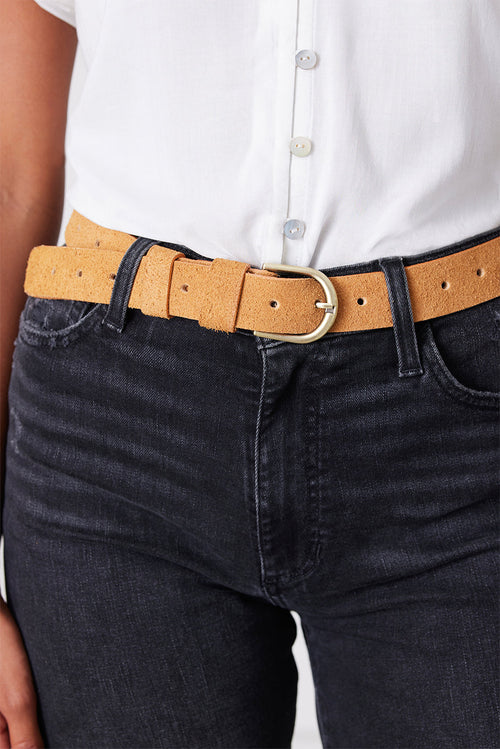Packaging
The brand uses 100% recycled and biodegradable materials for all packaging components, and ships orders “without any fluff.” Its poly mailers are made from 100% recycled polyethylene, containing post-consumer and post-industrial recycled content.
Material Sustainability
Paneros focuses on low-impact materials, often using deadstock (upcycled surplus) fabric and sustainable fibers across its collections. All Paneros fabrics are certified to OEKO-TEX® Standard 100.
Key materials span a range of eco-friendlier options: for example, the Bianca Crop Top uses a shell of 100% TENCEL™ Lyocell (wood-pulp-based fiber from Lenzing) with a lining of 100% rayon (both fibers are cellulose-based and biodegradable). Knitwear like the Simone Sweater Tee and Diana Cardigan are hand-knit from 100% cotton yarn, some of which is sourced as “existing” yarn (i.e. surplus/deadstock). Small items like scrunchies are produced from cutting-room scraps. One area for improvement is material traceability and certifications at the source.
Energy Use and Footprint
Paneros partners with facilities that prioritize sustainability: one long-term manufacturing partner in Indonesia holds both WRAP (Worldwide Responsible Accredited Production) and BSCI certifications and participates in programs to improve energy, water, and chemical usage in production. To address carbon footprint, Paneros has integrated a carbon offset program at checkout: 1% of each order funds regenerative carbon offsets.
These are positive steps, but Paneros has not yet disclosed comprehensive data or targets regarding greenhouse gas emissions, renewable energy usage, or transportation logistics.
Waste Management
The brand operates on a limited-production, small-batch model, typically making each style in quantities of ~60 pieces or fewer. Moreover, all collections are limited edition specifically because they use only existing materials. Paneros primarily works with deadstock fabrics, repurposing high-quality leftover textiles that would otherwise go to waste.
One long-term manufacturing partner in Indonesia holds both WRAP (Worldwide Responsible Accredited Production) and BSCI certifications and participates in programs to improve energy, water, and chemical usage in production.
Business Model
Paneros Clothing's business model is firmly rooted in slow fashion principles, promoting mindful consumption over fast-fashion turnover. The brand explicitly champions “Quality over Quantity”: it produces handmade, high-quality pieces designed for longevity.
Additionally, because production is small-batch, customers often have to pre-order or purchase before items sell out. This naturally instills a more thoughtful purchase process compared to readily abundant fast fashion stock.












